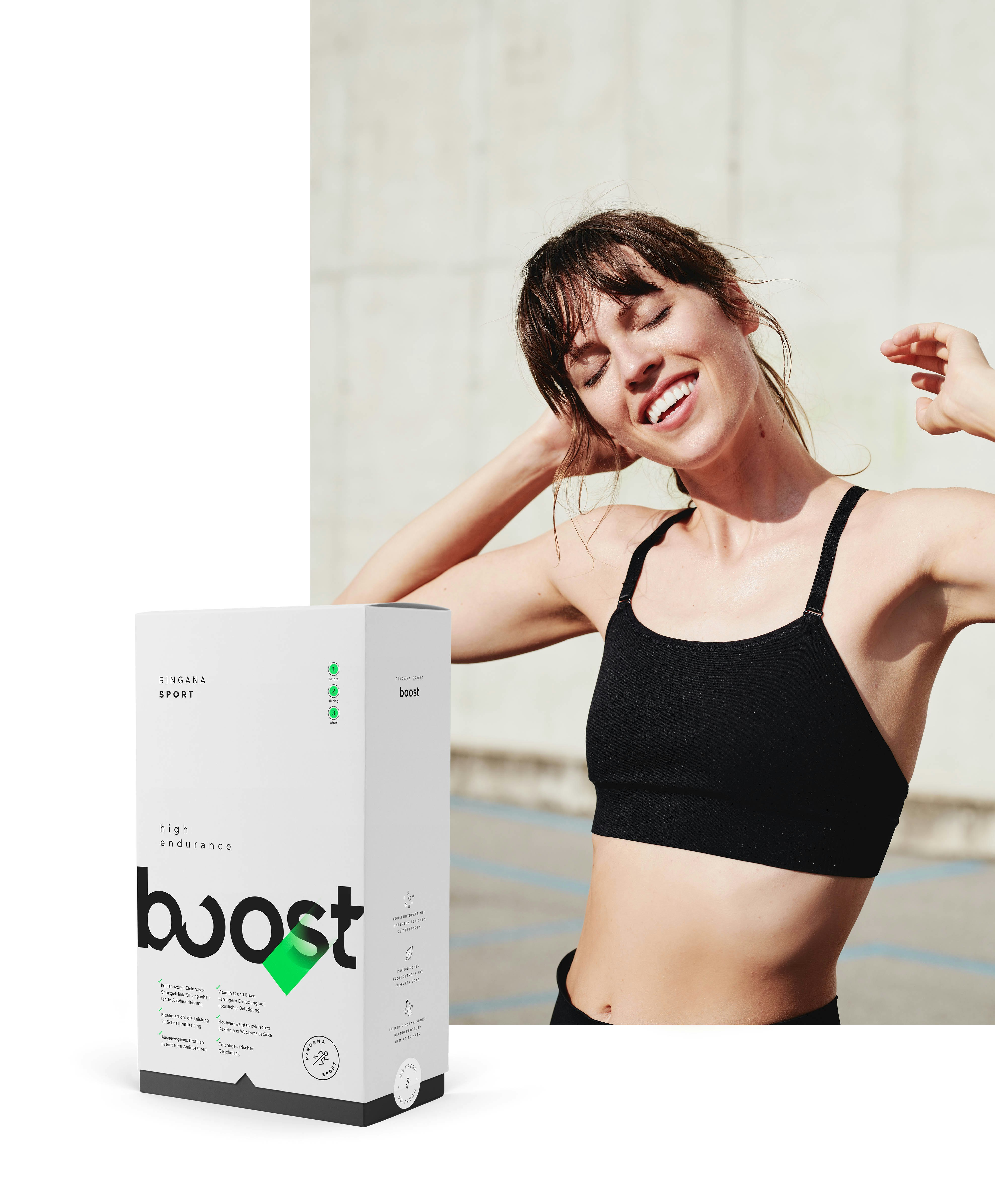People who do lots of sport – be it running, swimming or playing football – also need lots of energy. Simple! Yes it is!

At least if you have the right information. That’s because there are so many myths doing the rounds, along with all kinds of information and notions, particularly when it comes to sport. And that means there are loads of questions around the subject too. Why is nutrition so important? What should I bear in mind? Am I fully up-to-date? How do a vegan diet and sport fit together?
To shed some light on the matter, and in keeping with our focus on sport in the month of May, we have sought professional advice from Dr. Mag. Manuela Konrad. She is not only the President of the Österreichische Gesellschaft für Sporternährung (Austrian sport nutrition society) and a respected speaker at home and abroad, but also a dietologist with many years of experience of advising athletes, and a lecturer at the FH Johanneum University of Applied Sciences in Bad Gleichenberg.
#1
Dr. Konrad , how important is diet in terms of athletic performance?
An optimum diet is very important in sport. The overarching goals are performance on the one hand, but also the individual’s (long-term) health, whereby the immune system, recovery phases and the tolerability of individual foods and/or sport nutrition products play a major role. We know from studies that the probability of suffering a digestive complaint during an endurance competition is well in excess of 60 % and that, accordingly, the competition will take longer or may have to be discontinued. In Austria, we are still a long way from having scientifically-sound sport nutrition that is also used correctly in daily practice. The fact is that an athlete’s diet – both in day-to-day life and when practising sport – is integral to their athletic success. I am also firmly convinced that huge improvements can still be made for many people.
#2
If someone is observing a vegan diet, what do they need to bear in mind with regard to sport? And what are the challenges and differences compared with an omnivorous diet?
 On principle, veganism and sport can be reconciled well. What is most important here is ensuring an adequate supply of protein and of various micronutrients (Vitamin B12, zinc, Omega-3 fatty acids, iodine, etc.). Supplements – especially to cover Vitamin B12 requirements – are actually unavoidable. Vegans need to be willing to invest time in thoroughly exploring the subject of nutrition.
On principle, veganism and sport can be reconciled well. What is most important here is ensuring an adequate supply of protein and of various micronutrients (Vitamin B12, zinc, Omega-3 fatty acids, iodine, etc.). Supplements – especially to cover Vitamin B12 requirements – are actually unavoidable. Vegans need to be willing to invest time in thoroughly exploring the subject of nutrition.
We know that with certain nutrients such as potassium, sodium, magnesium and Vitamin B1, all of which are excreted with our sweat, the diet one follows does not impact on supply levels. Although there are no studies available, one repeatedly hears of faster regeneration with a vegan (and also vegetarian) diet because, on average, this entails a higher consumption of antioxidants. Using and combining plant-based protein sources (beans, lentils, soya products) is also important to ensure adequate protein intake.
A vegan diet needs careful planning and regular mentoring. There are few studies that compare an omnivorous* diet with veganism or vegetarianism, and those few show that there are no significant differences.
#3
Generally speaking, what standards of quality should a food supplement meet?
By definition, food supplements are “foods” and they serve to complement a normal diet. Food supplements are concentrates and have a nutrition-specific or physiological effect. The quality of the product is particularly important. To minimise the risk of contamination, many laboratories work with experienced WADA anti-doping labs, or have their products tested regularly by ISO-certified laboratories.
The Cologne List® is an initiative of the Olympic Training Center Rhineland to prevent doping, which it sees as part of its duty of care to athletes. It lists food supplements with minimal doping risk, which have been tested by a world-leading laboratory for anabolic steroids and stimulants using NEM-analysis for doping substances. All products shown on the Cologne List® are required to undergo independent analysis for anabolic steroids and stimulants. Further information is available at www.koelnerliste.com.
Generally speaking, products from overseas and those from “no name” companies purchased online should be treated with the greatest caution. They may be contaminated with anabolic steroids and stimulants.
#4

Myths & truth about carbohydrates: what role do they really play in sport nutrition?
There is one question here that always has to be answered first: what is my athletic goal? What do I want to achieve? Why am I doing sport? If the answer is “performance” then there is a very clear answer:
carbohydrates are the most important source of energy during physical exertion, particularly when it comes to endurance sports. Carbohydrates are sugar molecules that can be short-chain (such as household sugar), medium-chain (maltodextrin) or long-chain (wholegrain products). They are an ideal source of energy, quickly available and, most importantly, well-tolerated – particularly if a combination of different, short-chain carbohydrates is consumed.
#5
What benefits do you see in combining different carbohydrates in one sport nutrition product – as is the case, for example, with SPORT boost?

If different types of carbohydrate are combined, the end product is better tolerated than a single source of carbohydrates. They are an ideal source of energy, quickly available and, most importantly, well-tolerated – particularly if a combination of different, short-chain carbohydrates is consumed. In terms of tolerability, we need to remember that for lengthier exertion, suitable “carbohydrate training” needs to be done, so that the energy consumed can also be used quickly and efficiently.
Dr. Konrad,
Many thanks for talking to us!


 Zur Übersicht
Zur Übersicht